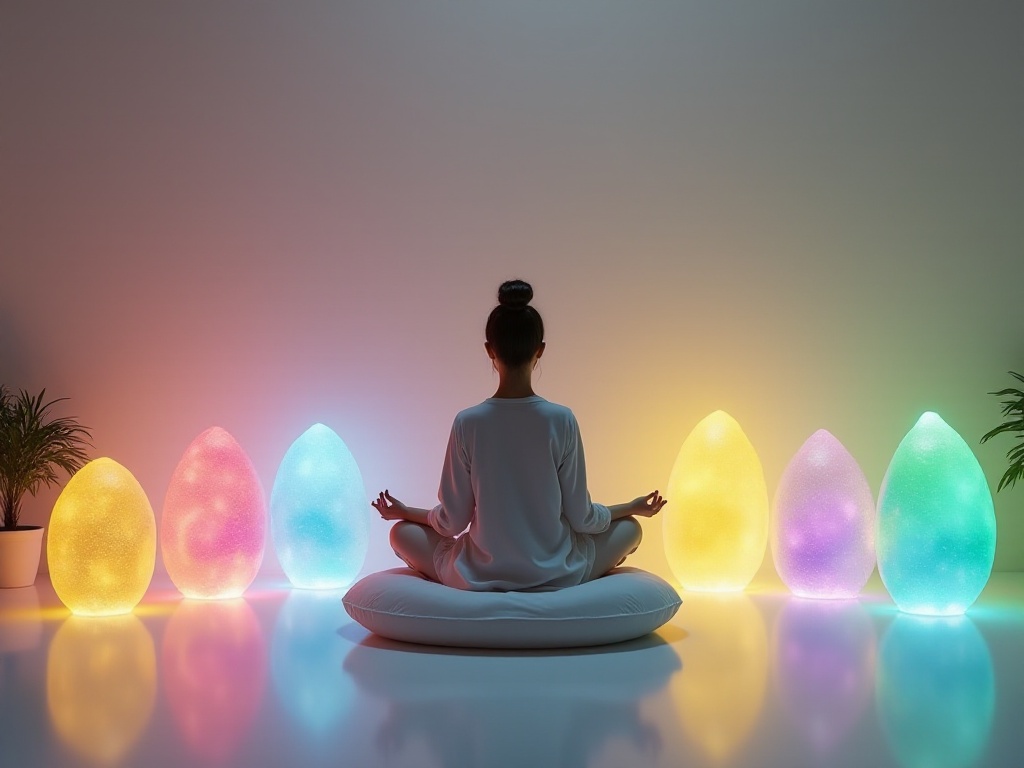Hello
As a travel blogger who has traveled extensively for many years, whenever I post about Thailand, I always receive many comments from followers asking: "Teacher, is 10,000 yuan enough for a trip to Thailand?" This question has really made me think deeply. To be honest, whether 10,000 yuan is a lot or a little in Thailand completely depends on your travel style. Some people stay in hostels and eat street food, making 10,000 yuan last quite well; others stay in five-star hotels and eat lavishly, possibly spending the entire budget in just three days. Today, let me use my years of travel experience to analyze in detail how to spend 10,000 yuan in Thailand.
Budget Planning
Speaking of budget planning, I must share my "painful lesson." I remember my first trip to Thailand when I was young and impulsive, thinking travel meant going wherever I wanted without proper budget planning. As a result, in Pattaya, I got taken advantage of by various vendors - whether it was extra charges for cabaret shows or inflated prices for seafood buffets. In the end, I not only exceeded my budget significantly but also maxed out my credit card.
This painful experience taught me that creating a travel budget is like solving a math problem. You need to divide the money into different modules, like breaking down a large number into several smaller ones. Each module needs careful calculation, with some flexibility built in. Only then can travel be both relaxed and enjoyable.
For example, you can first divide the budget into necessary and optional expenses. Necessary expenses include flights, accommodation, food, and transportation - these are the basics that ensure your trip runs smoothly. Optional expenses include shopping, entertainment, and massages, which can be adjusted based on actual circumstances. When making a budget, always ensure necessary expenses are covered before considering optional ones.
Basic Expenses
When it comes to basic expenses, we must discuss the "iron triangle" concept. Accommodation, transportation, and food are like the iron triangle of travel budgeting - they're absolutely essential. Based on my years of experience in Thailand, let me explain in detail how to plan these three expenses.
For accommodation, the price range is actually very wide. In Bangkok, from hostel beds costing a few dozen yuan to luxury hotels costing thousands, the choices are overwhelming. Taking a three-star hotel in the city center as an example, one night costs between 300-500 yuan. I particularly like hotels in the Sukhumvit area - last year I stayed at a boutique hotel there for 300 yuan. Although the room was only about 20 square meters, it had all the necessary facilities and was in a great location, just a 5-minute walk to the BTS station.
If your budget is really tight, hostels are a good option. Hostel beds in Bangkok generally cost between 50-80 yuan, and those trendy hostels in the city center not only have good living environments but also allow you to meet friends from around the world. I often meet interesting travel companions in hostels and then go out together, which not only helps make friends but also shares transportation costs.
Transportation cost is another major expense. Flying from Bangkok to Chiang Mai, economy class tickets usually cost between 600-800 yuan during peak season. However, if you catch airline promotions, you might get special tickets for around 300 yuan with good luck. Once I bought a special ticket from Bangkok to Chiang Mai during an airline flash sale for only 280 yuan, which was an incredible deal.
For city transportation, Bangkok's BTS (Sky Train) is the most commonly used. Single journey tickets cost between 20-50 baht, equivalent to just 4-10 yuan. If you find the subway too crowded, taking a taxi is also a good option. Now Bangkok's taxi app Grab is very convenient and affordable. I remember once taking a taxi from Siam Square to the Grand Palace cost only 60 baht, which is incredibly cheap compared to taxi fares in China.
Food might be the most perplexing expense. In Thailand, the price difference between street food and Michelin restaurants is huge. Generally, a street food meal costs between 30-50 baht, while regular restaurants in shopping malls charge 150-300 baht. I personally prefer going to local street-side restaurants, which are not only affordable but also offer the most authentic Thai flavors.
For example, I discovered a Hainanese chicken rice shop in Bangkok that has been open for decades. The owner is a third-generation Chinese Thai, and their Hainanese chicken rice is absolutely amazing - only 40 baht per serving, with tender meat and special sauce, there's always a queue. There's also a boat noodle shop in Chiang Mai, although slightly out of the way, but the soup base is especially delicious and only costs 35 baht. I ate there for several days without getting tired of it.

Additional Expenses
Besides basic expenses, there are some necessary additional costs to consider. Although these expenses are not large, they are essential for travel.
First is the visa fee. Getting a Thai visa now costs around 300 yuan. Although some cities now support visa on arrival, I still recommend getting your visa in advance for smoother entry. Getting your visa in advance also helps avoid long queues at the airport.
Travel insurance is another necessary expense. Seven-day travel insurance generally costs between 70-100 yuan. Honestly, this money is really worth spending. I've seen many tourists who didn't buy insurance and were at a loss when accidents happened during their travels. For instance, I met a girl in Chiang Mai who fell off a motorcycle, but because she had insurance, all her medical expenses were covered - otherwise, the medical bills alone would have cost thousands.
A phone card is also essential. Phone cards in Thailand are quite affordable now, with 7-day unlimited data packages costing around 60-80 yuan. With a phone card, you can not only stay in touch with home but also easily use navigation apps. I buy a local phone card every time I go to Thailand, making it convenient whether calling for a ride or finding restaurants.
Entertainment Budget
When it comes to entertainment budget, this might be the part where it's easiest to overspend. Thailand has so many entertainment options that if you don't plan well, you can easily exceed your budget.
Taking Bangkok as an example, just the entrance ticket to the Grand Palace costs 500 baht. If you want to pray at the Erawan Shrine, incense and garlands will cost at least 100 baht. This doesn't include entrance fees for other attractions. However, honestly, these attractions are worth visiting, especially the Grand Palace - its exquisite architecture and murals are truly breathtaking.
Massage is a must-try experience in Thailand. Regular Thai massages cost between 200-400 baht, while oil massages cost 500-800 baht. I suggest budgeting around 600 yuan, which allows for 2-3 different types of massages. I remember my first oil massage in Thailand - afterward, my whole body felt relaxed, as if all the fatigue accumulated in China had been massaged away.
Shopping budget is also a major expense. From night market items to cosmetics in shopping malls, shopping opportunities are abundant. I suggest budgeting around 1,500 yuan for shopping. However, this budget should be adjusted according to personal preferences. I know a shopping enthusiast who brings a large suitcase every time she goes to Thailand and spends over 3,000 yuan just on shopping. Mainly because skincare products and cosmetics are indeed cheaper in Thailand - many products that cost several hundred yuan in China might only cost half the price in Thailand.
Emergency Reserve
Speaking of emergency reserves, I must talk about my second trip to Thailand. That experience really taught me why emergency funds are necessary.
At that time, I rented a motorcycle in Chiang Mai to go to Doi Suthep, but accidentally scratched a parked car on the mountain road. Although the damage wasn't major, I had to pay several hundred baht. Unfortunately, I didn't carry much cash that day, and my credit card was at its limit. Finally, after much discussion with the car owner, they agreed to let me go back and get money to pay for the damages. That experience really scared me, and since then, I always reserve at least 1,000 yuan for emergencies.
Emergency funds aren't just for accidents; sometimes they can help you seize unexpected opportunities. For instance, once I found a beautiful handmade silver jewelry piece at Chiang Mai night market at a great price. But because I had used up my shopping budget, I almost missed this great find. Fortunately, I had emergency funds and was able to take that silver jewelry home.

Money-Saving Tips
Through my years of travel experience in Thailand, I've summarized many money-saving tips. These tips might seem simple, but they can really help you save a lot of money.
First is choosing the right travel time. Thailand's peak tourist season is generally from November to April of the following year. During this time, the weather is pleasant, but flight and hotel prices are also higher. If you don't mind occasional showers, you can choose to go between May and October. I particularly like going to Thailand in September - not only are flights cheaper, but hotels often have special offers, sometimes four-star hotels are cheaper than three-star hotels during peak season.
Be especially careful about eating near tourist attractions. Many restaurants recommended by tour groups often specifically target tourists with inflated prices. Instead of eating at these places, walk a few more steps to find local restaurants. I remember once near the Grand Palace, after walking about ten minutes, I found a really authentic boat noodle shop with prices only one-third of those in the tourist area, and the taste was even better.
For accommodation, if you don't mind spending a little more time on transportation, you can choose areas slightly farther from the city center. Hotels in these areas are usually much cheaper, and nearby dining and shopping are also more affordable. In Bangkok, I particularly like staying in the Thonglor area - although it's a bit far from the city center, the living atmosphere is especially nice, and room rates are much cheaper than in Sukhumvit.
For transportation, if your schedule is tight, it's recommended to book tickets online in advance. Many airlines regularly offer special price tickets, and if you can book several months in advance, you can often get great deals. Once I got a special ticket for 99 baht during an airline promotion - it was like finding a treasure.
Budget Template
So, how should you spend 10,000 yuan? Based on my experience, here's how to arrange a seven-day budget:
For flights, budget 2,500 yuan. This is for round-trip tickets, including international and domestic flights. If you choose the right time, you might even have some surplus. I often look for special price tickets on certain airline websites, and with good luck, you can save five to six hundred yuan.
Accommodation budget is 1,800 yuan, averaging 250-300 yuan per night. This budget can get you decent three-star hotels in Bangkok and Chiang Mai. If you don't mind hostels, this money can last even longer. I have a friend who particularly likes staying in hostels; he says it not only saves money but also helps meet friends from around the world.
Food budget is 1,400 yuan, 200 yuan per day. This budget is enough to experience various Thai foods. Breakfast can be at the hotel, lunch at local restaurants, and dinner at night markets trying street food. I especially recommend Chiang Mai's fruit salad with special spicy sauce - it's a perfect combination.
Transportation budget is 800 yuan, including intercity and city transportation. If you mainly stay in Bangkok, taking BTS and occasional taxis, this money is more than enough. I usually buy a day pass in Bangkok, which allows unlimited subway rides and is very cost-effective.
Attraction budget is 1,000 yuan, enough to visit major attractions. Entrance fees for must-see sites like the Grand Palace and Reclining Buddha Temple add up to about 700-800 yuan. The remaining money can be used to visit some lesser-known attractions or experience special activities.
Shopping budget is 1,500 yuan, to be adjusted according to personal preferences. If you like buying cosmetics and skincare products, you might need to increase this budget. But if you just want to buy some small souvenirs, this amount is enough. I usually arrange shopping for the last few days of the trip, which helps better control the budget.
Emergency budget is 1,000 yuan, which is best not to use. But if you really encounter unexpected situations, having this money will give you peace of mind. I reserve this amount of money for every trip, and although it's rarely used most of the time, it's better to be safe than sorry.

Money-Saving Suggestions
Through my years of travel in Thailand, I've found that saving money is actually quite easy with a bit of careful planning.
For accommodation, if you don't mind spending a little more time on transportation, you can choose areas farther from the city center. Hotels in these areas are not only cheaper but often offer a more authentic living atmosphere. I particularly like staying in Bangkok's Ratchada area - although it's far from the city center, the nearby night markets are very lively, and room rates are only half of those in the city center.
For dining, it's recommended to go to restaurants frequented by locals. These restaurants might have simple decorations, but the taste is often much better than those in tourist areas. I found a boat noodle shop in Bangkok that has been run for three generations - although the shop is unassuming, there's always a long queue. A bowl of noodles costs only 40 baht, but the soup base is especially rich, and the noodle texture is excellent.
There are also many money-saving tips for visiting attractions. Many attractions offer combined tickets, which are cheaper than buying individual tickets. Also, some attractions have discounts during certain time periods - for example, the Grand Palace tickets are half price after 4 PM. I usually keep this information on my phone so I can arrange the itinerary according to time, saving money while not missing attractions I want to see.

Conclusion
After saying all this, the most important thing to remember is: a budget is not a restriction but a tool to make travel more relaxed. Reasonable budget planning can prevent you from being at a loss about money issues while fully enjoying your travel.
These suggestions are summaries of my years of travel experience in Thailand, and I hope they can help friends preparing to visit Thailand. Of course, everyone has different travel styles, so budget allocation will differ. The most important thing is to adjust according to your actual situation.
By the way, next week I'll write a special guide about bargaining in Thailand. Bargaining is a big lesson in Thailand. From night markets to shopping malls, if you master the correct bargaining techniques, the money you save could fund several more days of travel.


